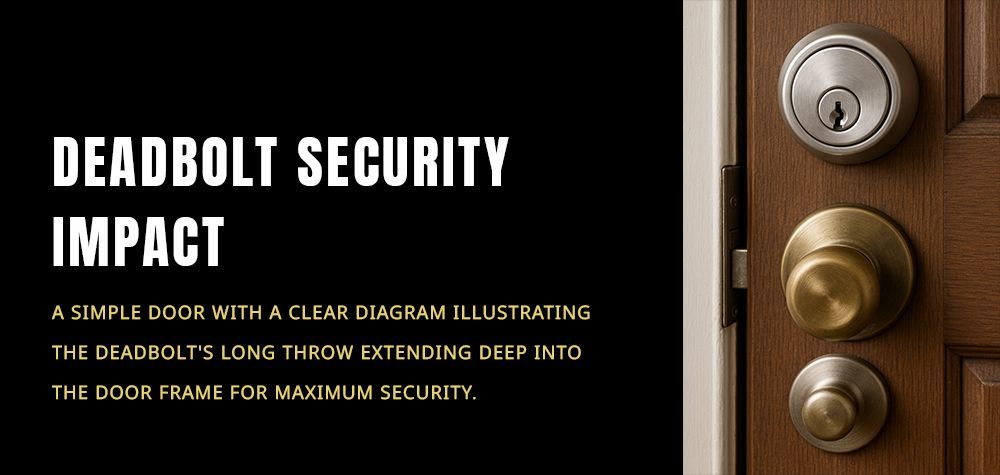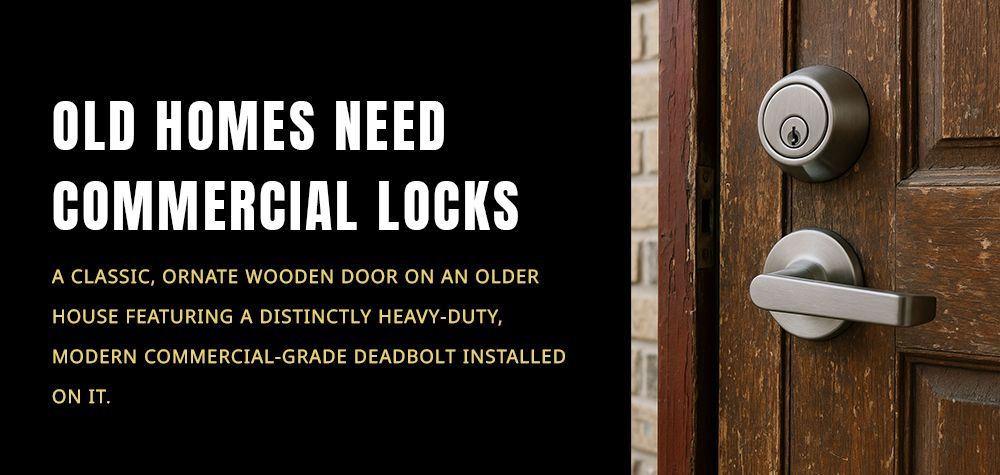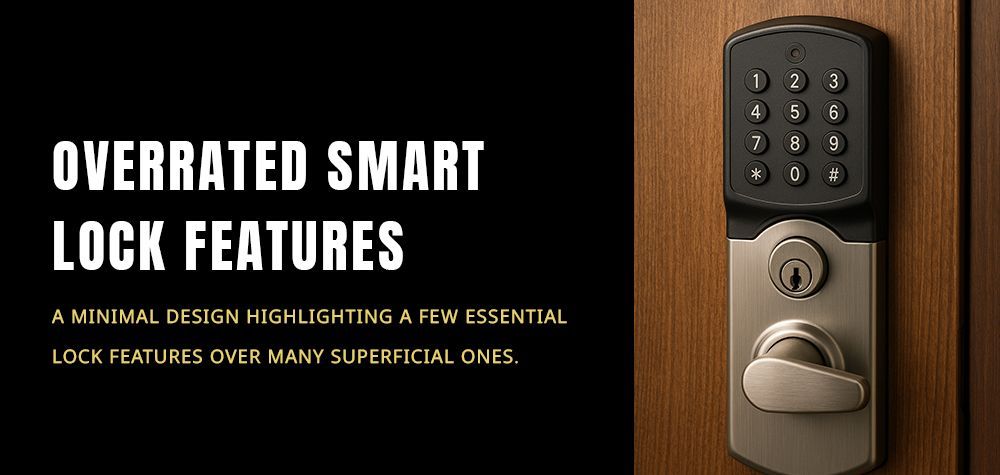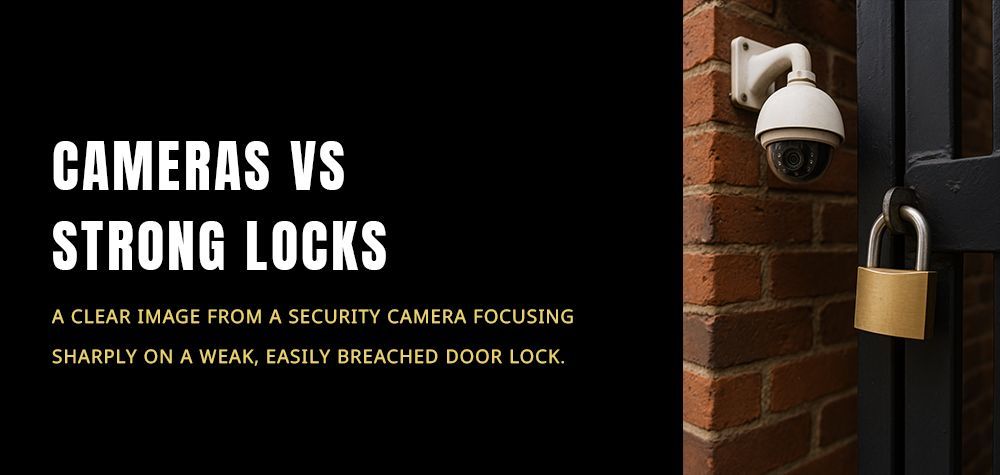What to Expect During a Lock Rekeying Service
Locks are the first line of defense for your home, office, or any property you want to keep secure. But what happens when you move into a new place, lose a key, or experience a security breach? Rekeying your locks is a cost-effective and efficient way to ensure security without replacing the entire lock system. But if you've never had a lock rekeyed before, you might be wondering what the process entails. This guide will take you through everything you need to know about a lock rekeying service, from the reasons why you might need it to the step-by-step process and what to expect from a professional locksmith.
Why Would You Need a Lock Rekeying Service?
There are several situations where rekeying your locks is a wise decision. One of the most common reasons is moving into a new home or office. You never know how many copies of the old keys are floating around, so rekeying provides peace of mind. Losing a key is another reason—if your keys fall into the wrong hands, your security could be compromised. Rekeying is also an excellent solution for landlords who need to change access between tenants without replacing the entire lock system.
Another situation where rekeying is useful is after a break-in or an attempted burglary. Even if the intruder didn’t succeed in entering your property, you can’t be sure that they didn’t obtain a copy of your key. Rekeying ensures that only new keys work on your existing locks. Similarly, if you have given keys to contractors, house sitters, or former employees and want to limit access, rekeying offers a simple solution.
How the Lock Rekeying Process Works
1. Consultation and Assessment
The process begins with an assessment of your locks. A locksmith will evaluate whether your current locks can be rekeyed or if replacement is a better option. Most standard pin and tumbler locks are easily rekeyed, but some high-security locks may require special tools or may not be rekeyable at all.
2. Disassembling the Lock
Once the locksmith determines that rekeying is possible, they will remove the lock cylinder from the door. This step involves unscrewing or unfastening the lock from the door handle or deadbolt assembly. While this might seem complex, a professional locksmith can do this quickly and without damaging your door.
3. Rearranging the Pins
Inside the lock cylinder, there are small pins that correspond to the grooves in your key. The locksmith will remove these existing pins and replace them with a new combination of pins that match the new key. This step ensures that the old key no longer works while allowing the lock to function as it did before.
4. Reassembling and Testing the Lock
After rearranging the pins, the locksmith will put the lock back together and reinsert it into the door. They will then test the new key to ensure smooth operation, making any necessary adjustments for seamless locking and unlocking.
5. Providing the New Keys
Once the rekeying process is complete, the locksmith will hand you a set of new keys. It’s a good idea to test them immediately to ensure they work correctly. If needed, you can request extra copies to distribute among trusted individuals.
Potential Risks and Considerations
While rekeying is generally a straightforward and safe process, there are a few things to consider. First, if your lock is old or damaged, rekeying may not be the best option. In such cases, replacing the lock entirely might be a better long-term solution. Additionally, if you have multiple locks that you want to work with a single key, the locks need to be of the same brand and model. A locksmith can advise on whether your locks are compatible for keying alike.
Another risk is hiring an inexperienced locksmith. If the pins are not correctly rearranged or the lock is improperly reassembled, you might experience issues with your lock jamming or not working smoothly. This is why it’s crucial to work with a reputable locksmith with positive reviews and proven experience.
Expert Recommendations for Maintaining Rekeyed Locks
Once your locks have been rekeyed, maintaining them ensures long-term functionality. Regularly lubricating the lock with graphite or a silicone-based lubricant can help prevent wear and tear. Avoid using excessive force when turning the key, as this can damage the internal pins over time. If you ever notice difficulty inserting or turning the key, contact a locksmith to check for any issues before they escalate.
Preventive Measures to Enhance Security
Beyond rekeying, there are additional steps you can take to keep your property secure. If security is a major concern, consider upgrading to high-security locks that are resistant to picking and bumping. Smart locks are also a great alternative, allowing you to change access codes without the need for physical keys.
Another useful preventive measure is to establish key control. Keep track of who has access to your keys and avoid making unnecessary copies. If you need to share access temporarily, keyless entry options or lockboxes can provide secure alternatives.
Conclusion
Rekeying your locks is a smart and cost-effective way to improve security without replacing the entire locking system. Whether you’ve moved into a new home, lost a key, or need to restrict access, the process is quick, effective, and provides instant peace of mind. By understanding what to expect during a lock rekeying service, you can make an informed decision and ensure your property remains safe. Investing in professional locksmith services and following best practices for security will keep you protected for years to come.
Call Us Any Time!






